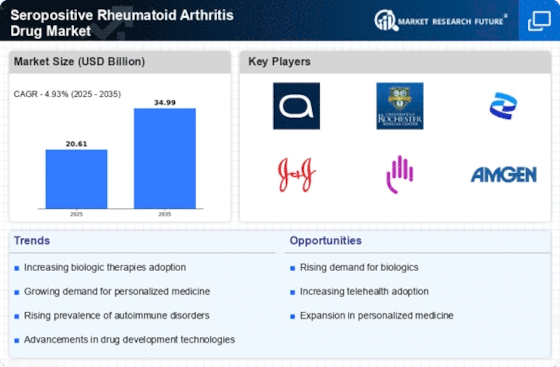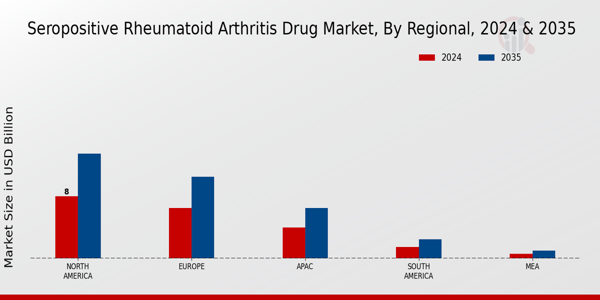Market Trends
Key Emerging Trends in the Seropositive Rheumatoid Arthritis Drug Market
The past two decades have seen some trends occur within seropositive rheumatoid arthritis (RA) drug market arising from advancements made in research, treatment options as well as personalized medicine. A major trend has been development of many biological Disease Modifying Anti-Rheumatic Drugs (bDMARDs) designed for patients who have seropositive Rheumatoid Arthritis. These agents act by altering immune functions so that they can change disease course thus giving hope to patients who do not respond fully or at all to traditional treatments. Improved knowledge about intricate workings of immune system during seropositive RA has resulted in emergence of several targeted therapies thereby making pharmacological space more diversified and effective in this respect.
This trend also aims at improved disease control and diminished damage to the joints progression among those affected.
Another significant trend observed within this market segment has been an increasing interest in combined therapeutic regimens. Researchers and clinicians are examining the combinations of different classes of drugs that can improve treatment outcomes. Simultaneous administration of traditional DMARDs alongside biologics or targeted synthetic DMARDs offers a multifarious approach for managing seropositive RA thus ensuring holistic care provision for such patients. Its goal is to help prevent damage brought about by chronic inflammation that affects multiple organs including not only joints but also skin, heart, lungs et cetera.
The advent of biosimilars has equally influenced the market dynamics for drugs against seropositive RA. Biosimilar agents are substitutes for original biologic drugs, which are cost-effective without compromising efficacy or safety. Biosimilars have led to increased competition within the market which may result in reduced costs of care as well as better access to biologicals by patients who suffer from seropositive RA. There is a global idea that goes along with this trend – advanced therapies should become cheaper and available to many people.
Moreover, the move has been towards individual target model called “treat-to-target” (T2T) in seropositive RA management. It also means that treatment goals such as low disease activity or remission have been set and treatment modified accordingly. T2T concept involves continuous monitoring of disease activity and changing the therapy until certain targets are reached so as to optimize the outcomes. This is a paradigm shift from reactive approach to managing diseases like seropositive RA to personalized medicine.
The market dynamics for drugs used in treating seropositive RA have changed over recent years with increasing influence by patients’ reported outcomes and real-world evidence. It would be possible to make comprehensive evaluation of efficacy and tolerability of drugs if data on everyday clinical practice were included in the case of involving patients into clinical trials for various medications under investigation. By moving this way we emphasize not only patient-centered approach but also other factors affecting physical condition, mental health and wellbeing in these people.


















Leave a Comment